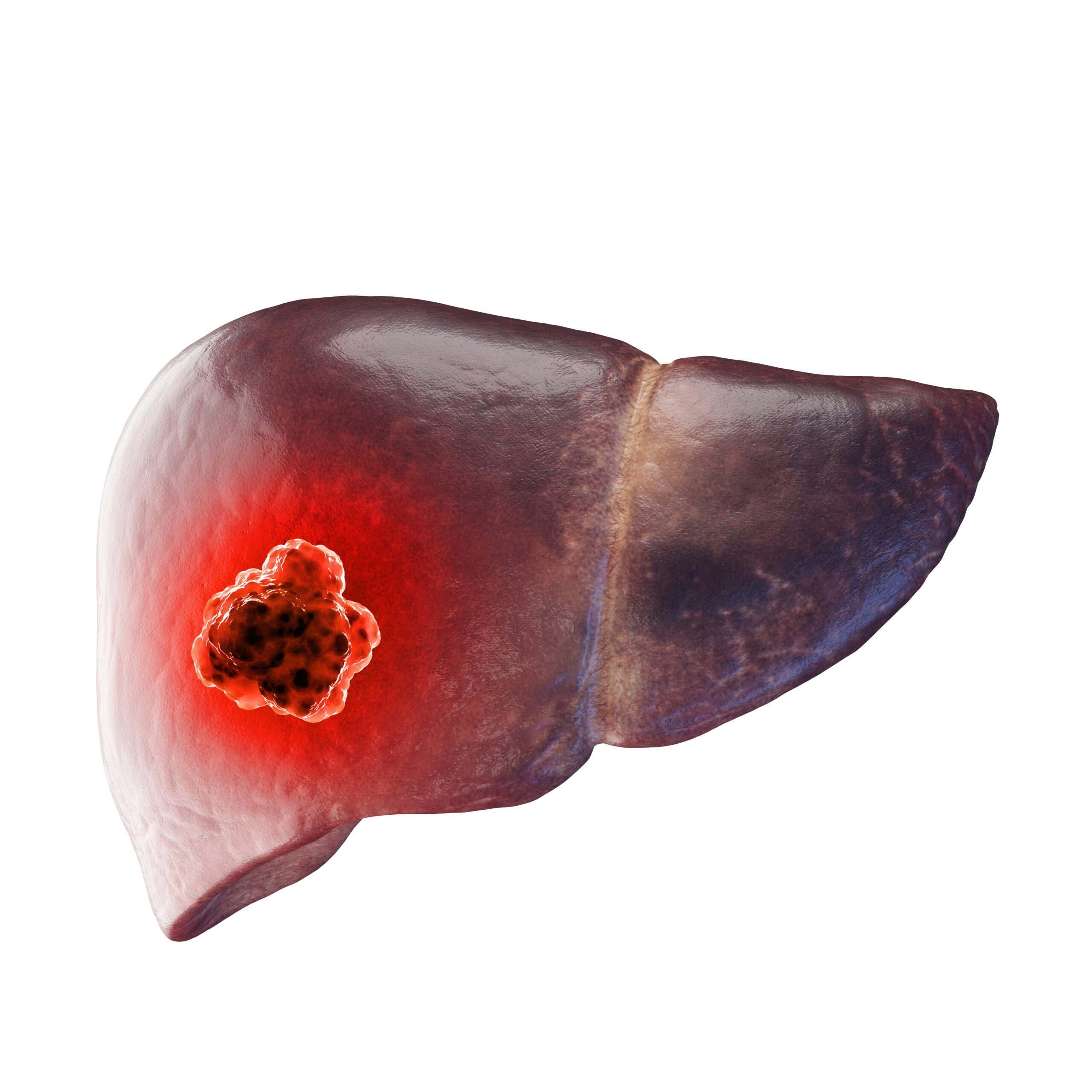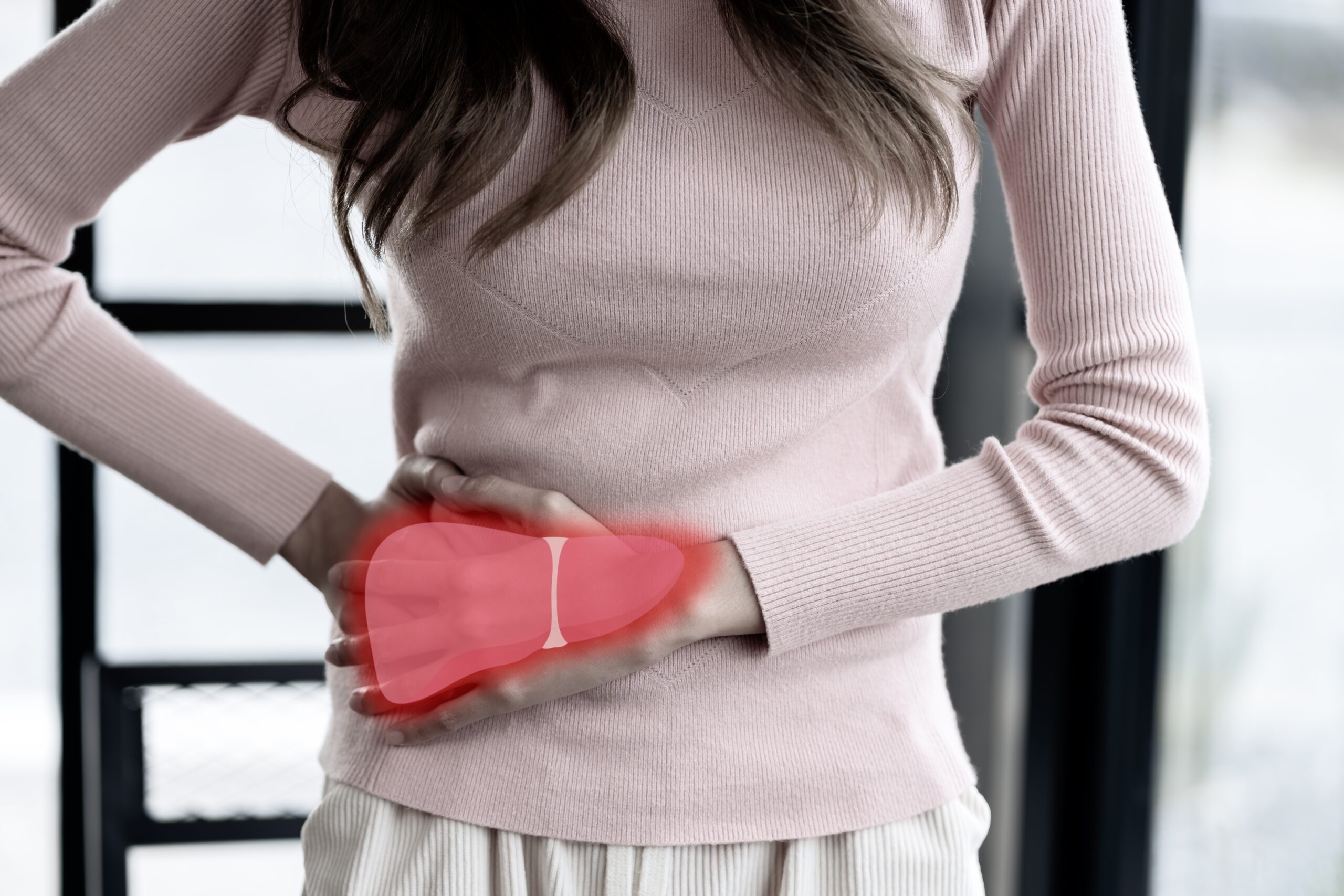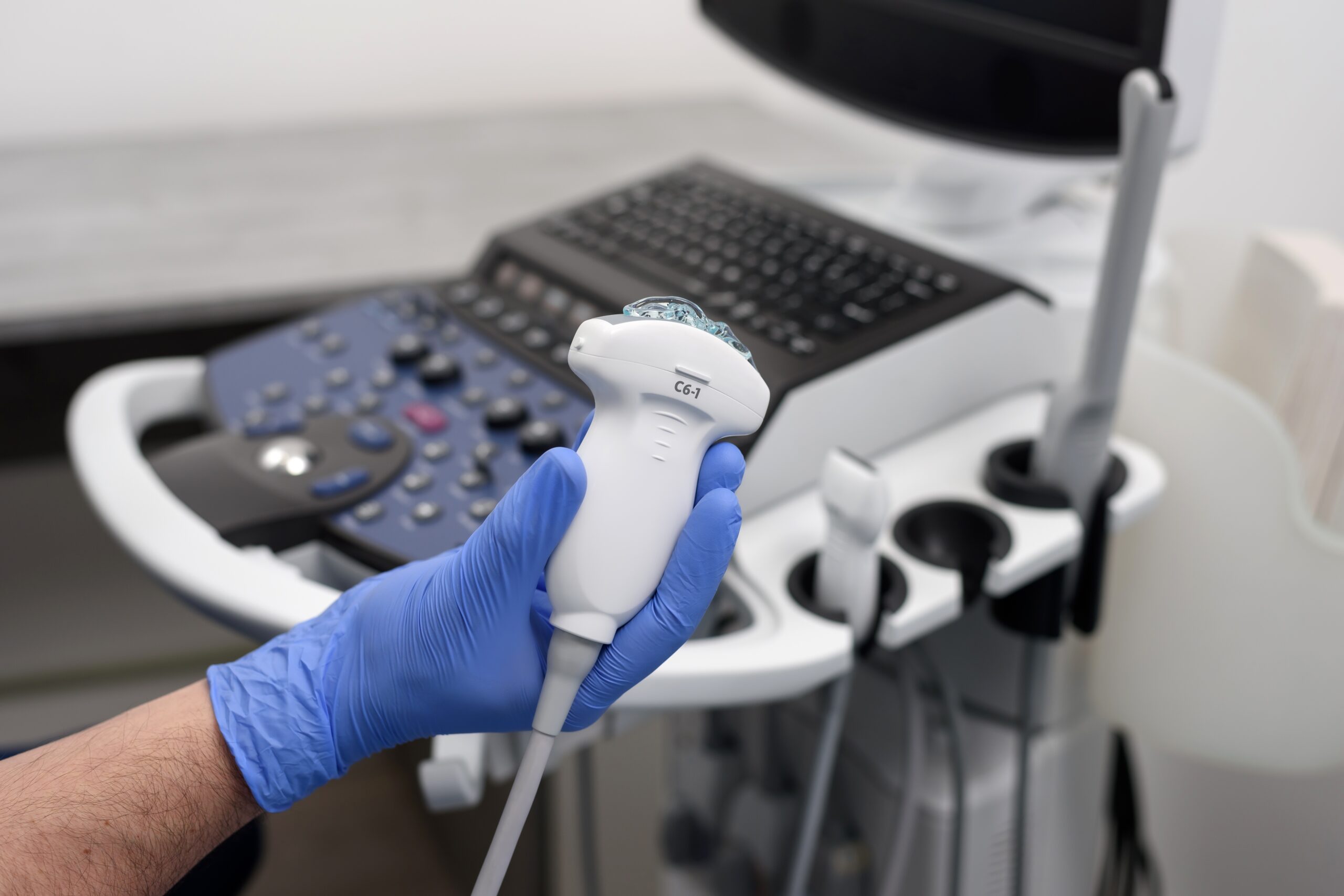Liver cancer is a malignant tumor that starts in the liver. It comes in two main kinds: one that starts in the liver, called primary, and another that begins somewhere else in the body and spreads to the liver, known as secondary.
This type of cancer often doesn't show early signs, making it hard to detect early on. Therefore, it is worth knowing how to protect yourself against it before it is too late. What factors increase the risk of disease? What symptoms should worry you?

The liver is the largest gland in the human body. It is considered an internal organ and gland as it produces certain hormones and vital proteins. At the average height, a liver weighs about 1400 grams, making it also the heaviest organ in the body. However, its exact weight varies depending on gender, height, and weight. The liver sits on the right side of your stomach, usually hidden under the ribcage. It's made up of four parts called lobes – these are the right, left, quadrate, and caudate lobes. The right lobe is the biggest one out of all of them.
This organ has unique regenerative skills, meaning it can renew after damage from factors such as alcohol, certain medications, or viruses, and it can regrow after up to 90% of it has been removed from the body. This skill is crucial after a liver transplant and enables transplants from living donors. However, when the long-lasting damaging factor destroys liver cells, their ability to regenerate is limited, and instead of cell renewal, replacing the cells with connective tissue starts.
The liver comprises several types of cells and is supplied with blood from two blood vessels: the portal vein (carrying blood rich in nutrients) and the hepatic artery (carrying blood rich in oxygen). Most blood, around 70% of the supply, comes from the portal vein.
To understand the symptoms of liver cancer, it’s important to know the functions of that crucial organ. The liver has several vital functions critical for the entire body’s proper functioning. Experts estimate that the organ has around 500![]() functions. The most significant ones include:
functions. The most significant ones include:
Like most cancers, liver cancer is caused by DNA mutation in the liver cells. DNA is information in every cell of your body that tells the cell how to function, when to multiply, and when to die. When an error occurs in that information, the cell starts to multiply uncontrollably, becoming cancerous.;
Many factors can trigger cells to become cancerous. For example, hepatitis viruses are linked with liver cell mutations. When the virus enters the cell, it changes the cell DNA, turning correct cells into cancerous ones. Other triggers include alcohol, toxins, and aflatoxin B1![]() .
.
Some people are at a higher risk of developing liver cancer than others. Risk factors include:
Malignant liver tumors are divided into:
Among primary liver cancers, the most common are hepatocellular carcinoma and intrahepatic cancer (bile duct cancer).
Secondary liver cancer, i.e., metastasis of other cancers to the liver, may occur in the course of many different cancers – for example, stomach cancer, pancreatic cancer, lung cancer, breast cancer, skin cancer, and others. The liver is an organ where metastases occur often due to its rich blood supply. Metastases in the liver may appear even several years after recovery from cancer, which is why regular follow-up after radical cancer treatment is necessary.

Humans can’t live without their liver as it plays a vital role in the body. When liver cells get damaged during liver cancer, their functions cannot be executed properly, leading to many symptoms. However, at early stages, liver cancer may not cause any symptoms as the majority of the organ is still working. At early stages, the cancer is often diagnosed by chance during routine exams performed for other reasons. At more advanced stages, liver cancer may cause symptoms![]() such as:
such as:
Having those symptoms doesn’t necessarily mean that you have liver cancer. Many of them are common in other less severe conditions, but if you have it, they should be assessed by a physician.
Metastatic tumors in liver cancer appear very often and are most often located in the kidneys, lungs, brain, bones, and lymph nodes![]() . Metastatic tumors are characterized by being built of the same cells as the primary cancer tumor.
. Metastatic tumors are characterized by being built of the same cells as the primary cancer tumor.
Liver cancer is not a common disease. Experts estimate that in 2024, up to 42,000![]() people in the United States will become ill from primary liver tumors. However, secondary liver tumors (metastases from cancers originating in other body parts) are much more common.
people in the United States will become ill from primary liver tumors. However, secondary liver tumors (metastases from cancers originating in other body parts) are much more common.
Primary liver tumors are estimated to cause around 5%![]() of all cancer-related deaths in the United States. The most common type of liver cancer is called hepatocellular carcinoma (HCC).
of all cancer-related deaths in the United States. The most common type of liver cancer is called hepatocellular carcinoma (HCC).
Your physician may notice some worrying symptoms during physical examination. After that, doctors might do some tests to make sure of their diagnosis. These tests![]() can include:
can include:

The advancement of liver cancer is assessed in staging scales. The stages help predict recovery chances and plan a treatment. To decide on which stage the cancer is, physicians evaluate information such as whether the tumor has spread to the other body parts, how well the liver performs its functions, and what symptoms the disease is causing. The stages![]() include:
include:
Liver cancer treatment options include:
Sometimes, the liver part where the lesion has been found is partially removed. The ransoming part of the organ takes over its functions and can regrow with time. The operation during which a part of the liver is removed is called hepatectomy![]() . The extent of surgery varies depending on the tumor size and may concern a piece of tissue, a whole lobe, or even a larger part of the organ.
. The extent of surgery varies depending on the tumor size and may concern a piece of tissue, a whole lobe, or even a larger part of the organ.
Embolization therapy may be applied to people not qualified for surgery. In embolization therapy, various substances block the blood flow through the hepatic artery. The tumor doesn’t receive oxygen and nutrients, slowing its growth.
The liver receives oxygen from the portal vein and hepatic artery. Usually, the tumor is supplied with blood from the hepatic artery. After embolization, healthy tissues still receive blood from the portal vein.
Radiation therapy uses machines that send radiation toward the cancerous cells to kill them. This treatment is applied in the series to give time to healthy tissues for recovery. Side effects![]() of this therapy option most commonly include diarrhea, hair loss, fatigue, and skin changes.
of this therapy option most commonly include diarrhea, hair loss, fatigue, and skin changes.
Immunotherapy uses substances originating from the body or produced in the laboratory to boost the body’s immune system and fight cancer. Those substances can redirect and restore the body’s natural immune system resources.
Cancer prevention involves avoiding risk factors. Getting vaccinated for hepatitis B virus (HBV) protects a person from acquiring hepatitis B, which is a significant risk factor for liver cancer. Usually, the vaccine is administered to newborns, which has been proven to lower the risk of liver cancer in children. While there's no vaccine to prevent hepatitis C, preventing certain activities can help you avoid catching the virus.
Drinking too much alcohol can harm your liver cells a lot. So, if you stop or drink less alcohol, you have a smaller chance of getting liver cancer.
Another way to avoid getting ill is to reduce your possible exposure to aflatoxin B1![]() , a substance produced by some types of fungi that can be present in food. Contamination with this substance is most common in hot and humid climates, such as Southeast Asia.
, a substance produced by some types of fungi that can be present in food. Contamination with this substance is most common in hot and humid climates, such as Southeast Asia.
Early stages of the disease usually don’t cause any symptoms. If you notice any symptoms that may be suggestive of liver cancer, you should see your physician to confirm or exclude the diagnosis. Symptoms that should primarily concern you include the skin and whites of the eyes turning yellow, losing weight without trying, a swollen belly, and pain in the right part of the abdomen. The doctor will recommend further steps after performing the necessary tests and establishing the diagnosis. People in risk groups (e.g., patients with hepatitis C or diagnosed with fatty liver disease) should regularly come for check-ups and perform tests ordered by their doctor.